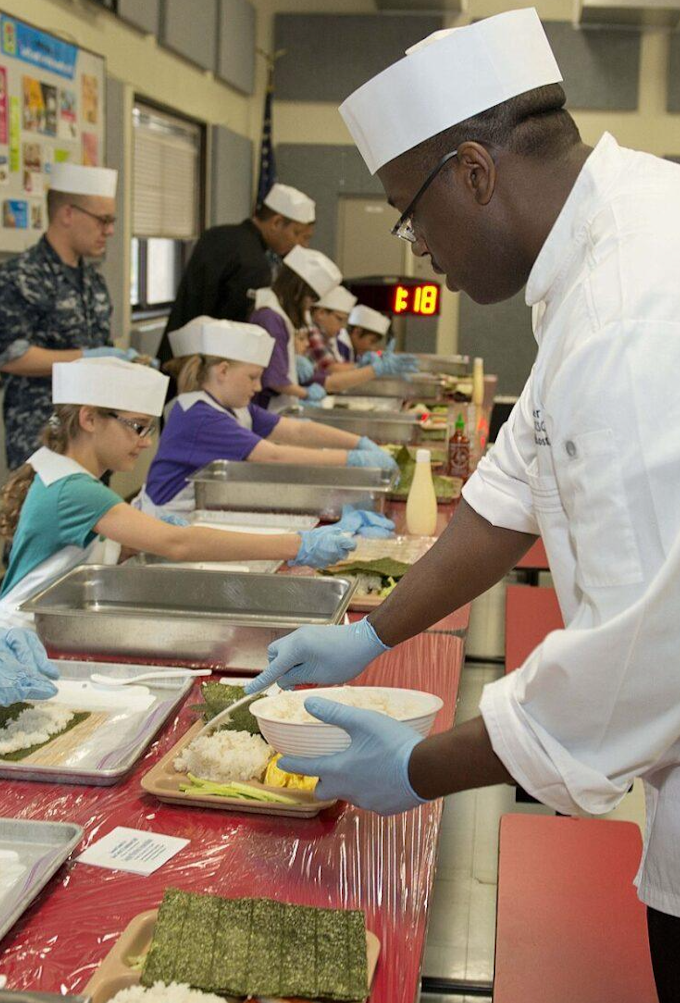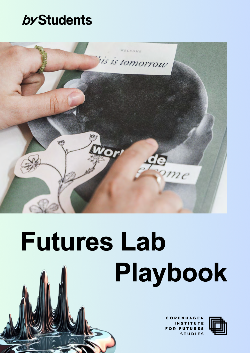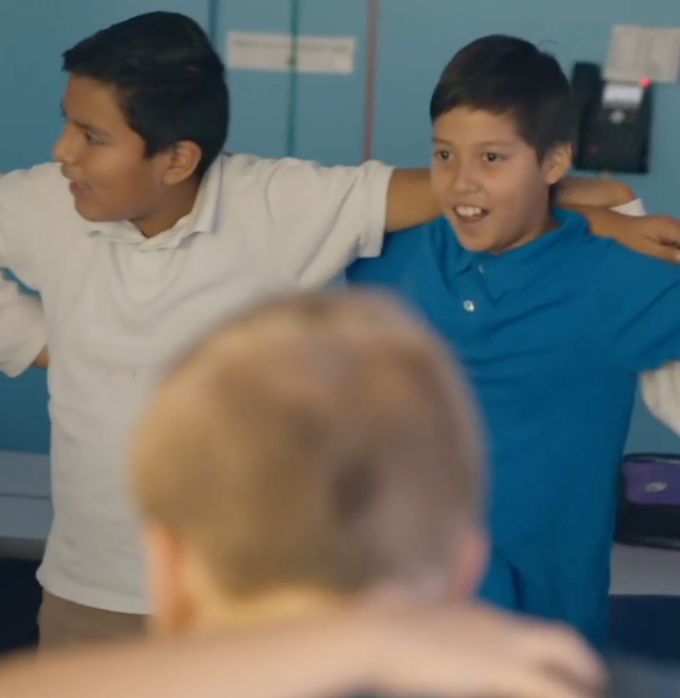July 4, 2025
Teaching
Teaching the science and responsibilities of caring for life

Petty Officer 2nd Class Kegan Kay teaching a class of kids to make sushi rolls. Image via Public Domain
Skills like cooking, growing food, repairing things, caring for others, managing money, resolving conflict, and understanding one’s place in the natural world were once woven into daily life and passed down by example. But as societies industrialized in the late 19th and early 20th centuries, labor became increasingly specialized and urbanized. Families spent less time together at home and more time in wage work and formal schooling.
Corporate marketing promoted dependence on products and services rather than shared skills and mutual aid. Convenience culture devalued homegrown knowledge: cooking became takeout; mending gave way to disposal. The notion of being a “good citizen” shifted from contributing to one’s community to participating in the economy.
The bad news is that schools didn’t fill the gap when families lost time and capacity to pass on life skills. Home economics and vocational education—once strong pillars of U.S. public schools—were gradually marginalized or eliminated by the 1980s and 90s due to budget cuts, stigma, and a push for college-for-all. “Productivity” replaced informal caregiving and hands-on learning as a dominant value.
In the past two decades, digital interaction and algorithm-driven attention economies have become increasingly dominant. Time once spent in kitchens, gardens, garages, or deep conversations is now often consumed by screens. Even when families are physically present, skill transmission is seldom on the agenda.
The good news is that this loss is neither inevitable nor irreversible. Human ecology education resists consumer culture by rooting people in practices, relationships, and values that emphasize interdependence, sufficiency, care, and regeneration over consumption, competition, and disposability. It doesn’t just critique consumerism—it offers a lived, embodied alternative.
This article serves as a good primer on why and how to reorient education toward regeneration.
"Human ecology education emphasizes reciprocal influence and interdependence—the “we, us, and our” of our lives. It enables us to identify with others as fellow humans, rather than just their characteristics, such as race, age, height, gender, or ethnicity. It goes beyond self-focused professional education by considering human relationships in the context of the other sixteen hours of the day."
"A continuous K-12, age-related human ecology program equips students to transition to adulthood with the maturity and skills to live independently while navigating complex social systems at all scales. Graduates will have learned precisely what sharing means and how and why it ultimately benefits them, and they will know how to be self-sufficient and resilient as they face changes in their life stages, unforeseen events, or when personal or local resources diminish."
ARTICLE: Why Every Student Needs Human Ecology Education Now




